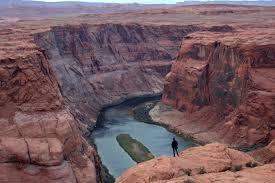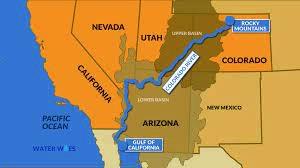The states of Arizona, California and Nevada have concluded negotiations among themselves and with the federal government on the use of water from the Colorado River. Since the three states agreed to an approximately one-third reduction in abstraction from the river, they will receive $1 billion in federal funds through the Inflation Reduction Act.

Reducing offtake by three million acre-feet of water over three years will preserve levels in Lakes Powell and Meade that are currently at 25 percent of capacity. The agreement will provide water for livestock and human consumption and maintain power generation.

Shortage of water in the Colorado River is pitting the lower basin states of Arizona, California and Nevada against the upper basin states of Colorado, New Mexico, Utah and Wyoming.
Water use is prescribed by a century-old agreement that was concluded before the effect of climate change was recognized. In recent decades hotter and drier conditions have required modification of total quantities used and individual state allocations of water from the Colorado River system. The agreement ultimately has implication for large egg-producing complexes in Arizona and California through both supply and the growth of the regional market.